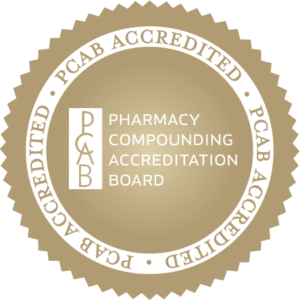Table of Contents
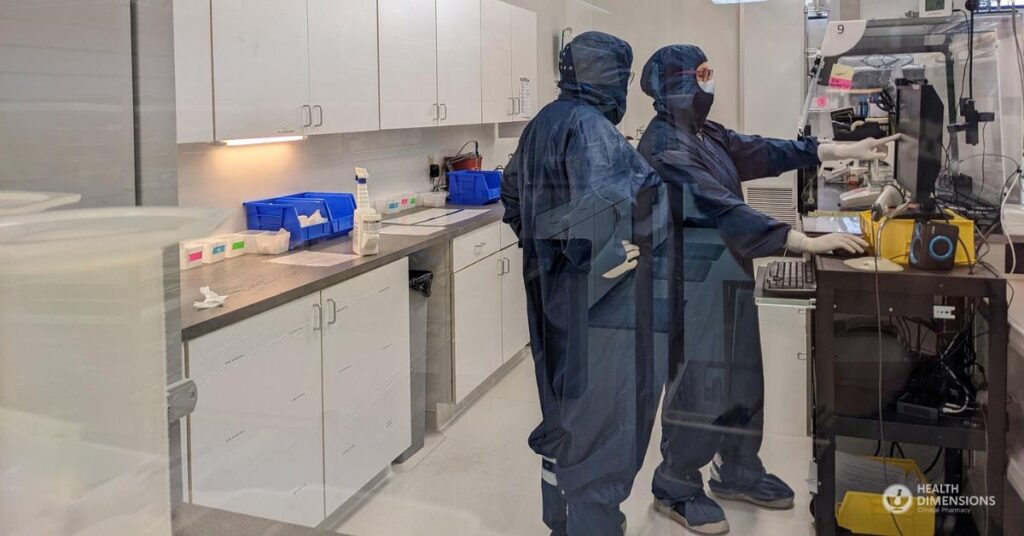
Compounding in a sterile environment sets compounding pharmacies apart.
What is sterile compounding?
For a number of medications, it is critical that they be provided to the patient in a sterile fashion, to make sure that bacteria do not enter the body along with the important medicine. In many cases, sterile compounded medications are not available through commercial pharmacies, and these prescriptions can only be dispensed through a compounding pharmacy that has a sterile production capacity.
The United States Pharmacopeia (USP) is an official organization that sets the standards for sterile compounding, and has specific rules regarding which medications must come from a sterile compounding pharmacy. These include medications that must be injected via a needle, intravenous infusion, or injections into the eye. These all fall under the USP’s General Chapter <797>.
Sterile compounded medications include:
A compounding pharmacy, working with the prescribing healthcare professional will determine the best way to administer the medication for a specific patient. Some examples of sterile medications include:
- Eye drops
- Pain management infusions
- Antibiotic treatments
- Anti-fungal treatments
- Bladder treatments
- Erectile dysfunction treatments
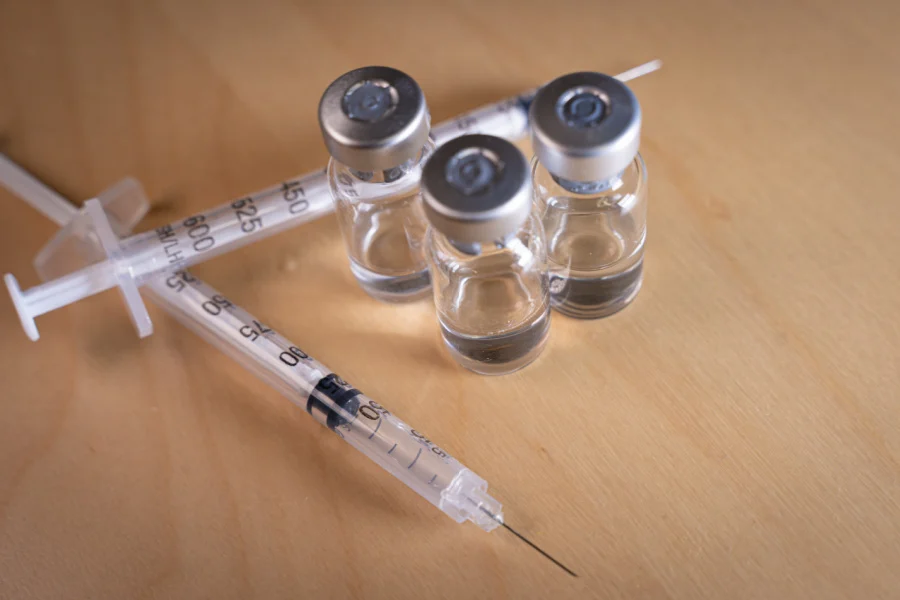
How does sterile compounding work?
In order to make sure that these medications are produced in a sterile environment, a compounding pharmacy sets up laboratories that are separate from any non-sterile environment. These labs are kept extremely clean, and are subjected to extensive testing to confirm that the environment is sterile.
There are multiple lab areas that are designated for certain types of medications or delivery systems in order to further guarantee that compounds are kept sterile and separated. Depending on the type of medication, the labs may employ positive pressure (non-hazardous sterile medication) or negative pressure (hazardous sterile medications) to maintain sterility and safety.
Consult with our pharmacist when writing a sterile compounded prescription.
Sterile Compounding Certification
Sterile compounding certification is required to dispense sterile medications
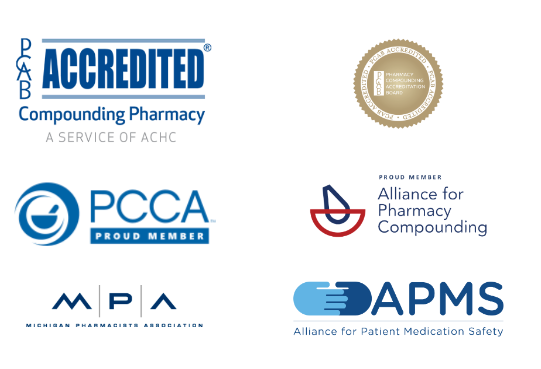
Health Dimensions Clinical Pharmacy is one of the nation’s first pharmacies PCAB/ACHC accredited for compounding (2006). HDCP is also a member of the Academy of Compounding Pharmacists and duly licensed by the State of Michigan. Additionally, USP certification requires constant and consistent monitoring of ALL compounding guidelines, not just the sterile ones. At HDRx we invest over 1,000 hours in cleaning, testing, and monitoring each year.
Where can Sterile Medications be Shipped?
We are licensed to ship prescriptions to MI, OH, IN, IL, WI, MN.
How to Write a Compounded Medication Prescription
Talk to a Compounding Pharmacist to Learn More About Ordering Sterile Medications
For the prescribing physician, clarity of dosage/percentage is an important part of writing a compound prescription. Each drug should be separately listed with its generic name, and the strength required. The prescription should include directions (e.g., 2x daily) and the amount to dispense if daily usage is clear.
Contact HDRx pharmacist to discuss formulations and answer any questions. Call (800) 836-2303.
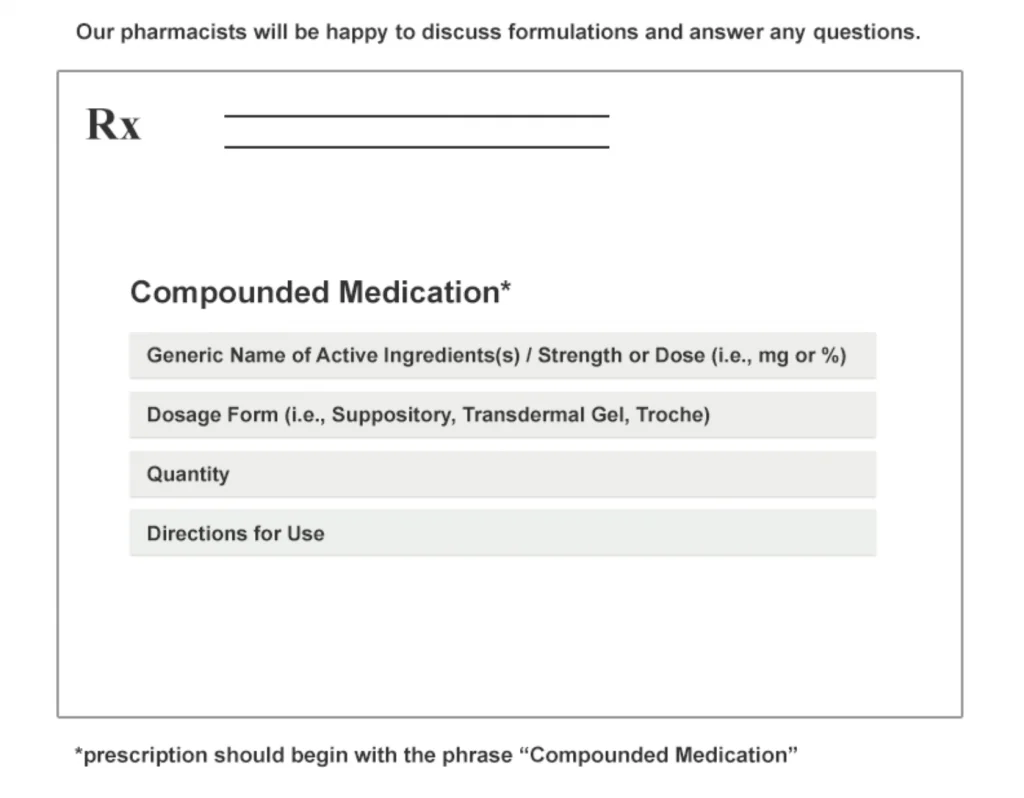
About Health Dimensions Clinical Pharmacy
Health Dimensions Clinical Pharmacy has been providing pharmaceutical solutions to doctors and their patients since 1996. Locally owned and based in southern Michigan, Health Dimensions Clinical Pharmacy was among the nation’s first compounding pharmacies to earn accreditation by the Pharmacy Compounding Accreditation Board (PCAB) of the Accreditation for Healthcare Commission.
Our mission is to partner with patients and physicians to provide service excellence, accuracy, and rapid response to patients’ personalized prescription needs.
To learn more about building a partnership, call Health Dimensions Clinical Pharmacy at (800) 836-2303.
Request a pharmacist consult
We are eager to help you get the best options in addressing the specific healthcare needs of your patients.






